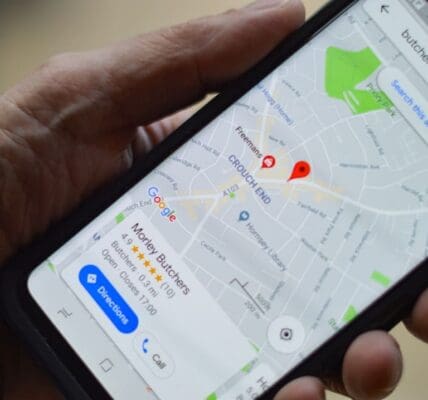Web page rank refers to the position of a webpage in the search engine results pages (SERPs). It is a measure of the relevance and authority of a webpage in relation to a specific search query. Web page rank is important because it directly affects the visibility and traffic of a website. Websites with higher page ranks are more likely to appear on the first page of search results, which leads to increased visibility and organic traffic.
Key Takeaways
- Web page rank is a measure of a website’s relevance and authority in search engine results.
- Factors that influence web page rank include quality content, backlinks, and user experience.
- A high web page rank can lead to increased visibility, traffic, and credibility for a website.
- Tools like Google PageRank and Moz can be used to check web page rank.
- Interpreting web page rank results involves understanding the scale and context of the numbers.
What is web page rank and why does it matter?
Web page rank is a numerical value assigned to a webpage based on its relevance and authority. It is determined by various factors, including the quality and quantity of backlinks, the relevance of the content, and the overall user experience of the webpage. The higher the page rank, the more likely it is to appear at the top of search results.
Web page rank matters because it plays a crucial role in search engine optimization (SEO). SEO is the practice of optimizing a website to improve its visibility and organic traffic from search engines. By understanding and improving web page rank, website owners can increase their chances of appearing on the first page of search results, which leads to more visibility, traffic, and potential customers.
Understanding the factors that influence your web page rank
Several factors influence web page rank, both on-page and off-page. On-page factors include the quality and relevance of the content, keyword usage, website structure, and user experience. Off-page factors include backlinks from other websites, social signals, and overall website authority.
For example, high-quality content that is relevant to the search query and provides value to users is more likely to have a higher page rank. Similarly, websites with a strong backlink profile from authoritative websites are also more likely to have a higher page rank.
The benefits of having a high web page rank
| Benefit | Description |
|---|---|
| Increased visibility | A high web page rank means your website will appear at the top of search engine results, increasing visibility and attracting more visitors. |
| Increased credibility | A high web page rank is a sign of quality and credibility, which can help establish trust with potential customers. |
| Increased traffic | A high web page rank can lead to increased traffic to your website, which can translate into more leads and sales. |
| Increased revenue | A high web page rank can lead to increased revenue, as more visitors and customers are directed to your website. |
| Increased brand awareness | A high web page rank can help increase brand awareness, as more people become familiar with your website and brand. |
Having a high web page rank comes with several benefits for website owners.
Increased visibility and traffic: Websites with higher page ranks are more likely to appear on the first page of search results, which leads to increased visibility and organic traffic. This can result in more potential customers and higher conversion rates.
Improved credibility and authority: Websites with higher page ranks are often seen as more credible and authoritative by users. This can lead to increased trust and a higher likelihood of users engaging with the website’s content or making a purchase.
Higher conversion rates: When a website appears at the top of search results, it is more likely to attract users who are actively searching for information or products related to their query. These users are more likely to convert into customers, resulting in higher conversion rates for the website.
How to check your web page rank: tools and techniques
There are several tools and techniques available for checking web page rank. Some popular options include:
1. Google Search Console: Google Search Console is a free tool provided by Google that allows website owners to monitor their website’s performance in search results. It provides information on web page rank, search queries, backlinks, and other important metrics.
2. Third-party SEO tools: There are many third-party SEO tools available that provide web page rank information, along with other SEO metrics. Some popular options include Moz, SEMrush, and Ahrefs.
3. Manual search: Another way to check web page rank is by manually searching for your target keywords on search engines like Google. This can give you an idea of where your webpage is ranking in relation to other websites.
Each method has its pros and cons. Google Search Console provides accurate and up-to-date information directly from Google, but it only provides data for your own website. Third-party SEO tools offer more comprehensive data but may require a subscription or have limitations on the number of queries you can make. Manual search is free but may not provide as detailed information as the other methods.
Interpreting your web page rank results: what do the numbers mean?

Web page rank is typically measured on a scale of 0 to 10, with 10 being the highest rank. However, it’s important to note that the scale is logarithmic, meaning that it becomes increasingly difficult to move up the scale as you reach higher numbers.
A web page rank of 0-2 indicates a relatively low rank and suggests that there is room for improvement in terms of relevance and authority. A rank of 3-5 indicates a moderate rank and suggests that the webpage is performing reasonably well. A rank of 6-8 indicates a high rank and suggests that the webpage is highly relevant and authoritative. Finally, a rank of 9-10 indicates an exceptional rank and suggests that the webpage is among the top results for its target keywords.
It’s important to keep in mind that web page rank is just one metric among many that should be considered when evaluating the performance of a webpage. Other factors, such as organic traffic, conversion rates, and user engagement, should also be taken into account.
Common mistakes that can hurt your web page rank
There are several common mistakes that can negatively impact web page rank. Some examples include:
1. Poor quality content: Content that is poorly written, irrelevant, or lacks value to users can negatively impact web page rank. It’s important to create high-quality content that is relevant to your target audience and provides value.
2. Keyword stuffing: Keyword stuffing refers to the practice of excessively using keywords in an attempt to manipulate search engine rankings. This can result in a penalty from search engines and negatively impact web page rank.
3. Low-quality backlinks: Backlinks from low-quality or spammy websites can harm web page rank. It’s important to focus on acquiring high-quality backlinks from authoritative websites.
4. Slow website speed: A slow website can negatively impact user experience and lead to higher bounce rates. This can result in lower web page rank.
Strategies for improving your web page rank: tips and tricks
There are several strategies that can be implemented to improve web page rank. Some tips and tricks include:
1. Create high-quality, relevant content: Focus on creating content that is valuable to your target audience and relevant to their search queries. This will help improve web page rank and attract more organic traffic.
2. Optimize on-page factors: Pay attention to on-page factors such as keyword usage, meta tags, headings, and internal linking. Optimizing these factors can help improve web page rank.
3. Build high-quality backlinks: Focus on acquiring high-quality backlinks from authoritative websites in your industry. This can help improve web page rank and increase website authority.
4. Improve website speed: Optimize your website’s loading speed to provide a better user experience. This can help improve web page rank and reduce bounce rates.
The role of content marketing in boosting your web page rank
Content marketing plays a crucial role in boosting web page rank. By creating high-quality, relevant content, website owners can attract more organic traffic and improve their chances of ranking higher in search results.
Content marketing involves creating and distributing valuable content to attract and engage a target audience. This can include blog posts, articles, videos, infographics, and more. By consistently creating high-quality content that is relevant to your target audience’s search queries, you can increase your chances of ranking higher in search results and improving web page rank.
Leveraging social media to enhance your web page rank
Social media can also play a role in enhancing web page rank. By leveraging social media platforms, website owners can increase their visibility, attract more organic traffic, and improve their chances of ranking higher in search results.
Some tips for using social media to enhance web page rank include:
1. Share your content: Share your website’s content on social media platforms to increase its visibility and attract more organic traffic.
2. Engage with your audience: Interact with your audience on social media by responding to comments, answering questions, and providing valuable insights. This can help build trust and credibility, which can positively impact web page rank.
3. Build relationships with influencers: Collaborate with influencers in your industry to increase your reach and attract more organic traffic to your website. Influencers can help promote your content and increase its visibility.
Monitoring and maintaining your web page rank over time
It’s important to monitor and maintain your web page rank over time to ensure that it remains high. This involves regularly checking your web page rank using tools and techniques mentioned earlier and implementing strategies to improve it if necessary.
Some tips for ongoing maintenance and monitoring include:
1. Regularly check your web page rank: Use tools like Google Search Console or third-party SEO tools to regularly check your web page rank and monitor any changes.
2. Analyze your website’s performance: Monitor other important metrics such as organic traffic, conversion rates, and user engagement to get a holistic view of your website’s performance.
3. Continuously optimize your website: Implement strategies to continuously optimize your website, such as creating high-quality content, acquiring high-quality backlinks, and improving user experience.
Web page rank is an important metric that directly affects the visibility, traffic, credibility, and authority of a website. By understanding the factors that influence web page rank and implementing strategies to improve it, website owners can increase their chances of appearing on the first page of search results and attracting more organic traffic. Ongoing monitoring and maintenance are also crucial to ensure that web page rank remains high over time.
FAQs
What is web page rank?
Web page rank is a metric used to measure the importance and relevance of a webpage on the internet. It is determined by various factors such as the number and quality of backlinks, content relevance, and user engagement.
Why is web page rank important?
Web page rank is important because it determines the visibility and credibility of a webpage on search engines. Pages with higher ranks are more likely to appear at the top of search results, which can lead to increased traffic and potential revenue.
How can I check my web page rank?
There are various tools available online that can help you check your web page rank. Some popular ones include Google PageRank, Alexa Rank, and Moz Domain Authority. These tools use different algorithms to calculate page rank, so it’s important to use multiple sources for a more accurate assessment.
What factors affect web page rank?
Web page rank is affected by various factors such as the quality and quantity of backlinks, content relevance, user engagement, website speed, mobile-friendliness, and security. Search engines use complex algorithms to evaluate these factors and determine page rank.
How can I improve my web page rank?
To improve your web page rank, you can focus on creating high-quality content that is relevant to your target audience. You can also work on building high-quality backlinks from reputable websites, optimizing your website for speed and mobile-friendliness, and ensuring that your website is secure and free from malware. It’s important to note that improving page rank is a long-term process that requires consistent effort and patience.












